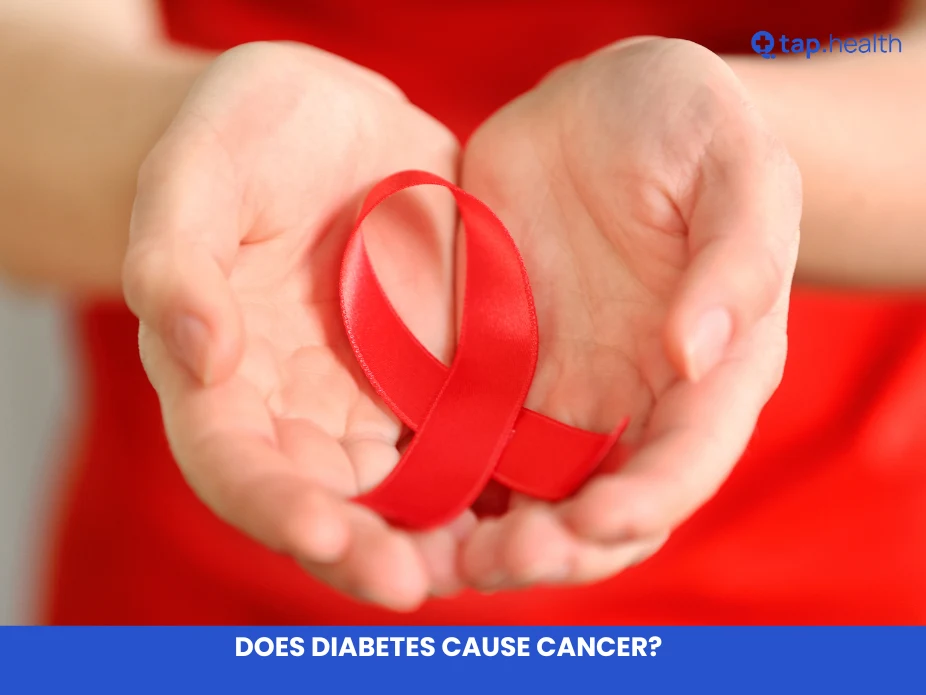Diabetes is a chronic condition that affects millions of people worldwide. As we learn more about diabetes, questions arise regarding its potential link to other serious health issues, including cancer. In this blog post, we will explore the relationship between diabetes and cancer, why this connection exists, and what you can do to stay healthy.
Understanding Diabetes
What is Diabetes?
Diabetes is a condition that occurs when the body either doesn’t produce enough insulin or can’t effectively use the insulin it does produce. Insulin is a hormone that helps glucose (sugar) enter the cells for energy. There are two main types of diabetes:
- Type 1 Diabetes: The body doesn’t produce insulin. This type usually appears in children and young adults.
- Type 2 Diabetes: The body doesn’t use insulin properly, which is often related to obesity and a sedentary lifestyle. This is the most common form of diabetes.
The Link Between Diabetes and Cancer
Studies have shown that people with diabetes may have a higher risk of developing certain types of cancer. But why is this the case?
- Insulin and Cancer Growth:
Research indicates that high levels of insulin can promote the growth of tumors. When people have type 2 diabetes, they often have higher insulin levels due to insulin resistance, potentially leading to an increased risk of cancers, particularly breast, liver, and colorectal cancers. - Inflammation:
Chronic inflammation is another factor that can link diabetes and cancer. High blood sugar levels can trigger inflammation in the body, which may encourage cancer cell growth. - Obesity:
Obesity is a common issue in people with type 2 diabetes. Excess body fat, especially around the abdomen, can produce hormones and other substances that may lead to cancer.
Real-Life Scenarios
Let’s look at a couple of real-life scenarios to illustrate this connection.Scenario 1: Ramesh’s Journey
Ramesh, a 45-year-old software engineer from Mumbai, was diagnosed with type 2 diabetes three years ago. He struggled with his weight and often had high blood sugar levels. After several years, he was diagnosed with colorectal cancer. Ramesh’s doctors explained that his diabetes could have contributed to his cancer risk.Scenario 2: Priya’s Experience
Priya, a 35-year-old teacher from Bangalore, was diagnosed with breast cancer after living with type 2 diabetes for several years. She learned that her high insulin levels could have played a role in the development of her cancer. Priya worked hard to manage her diabetes through lifestyle changes, including diet and exercise.
Expert Contributions
Dr. Neha Sharma, an endocrinologist based in Delhi, states, “While having diabetes does not directly cause cancer, it can increase the risk due to factors like insulin resistance, obesity, and chronic inflammation.” This insight emphasizes the importance of managing diabetes to mitigate cancer risk. For more information, you can visit Healthline.
Recommendations Grounded in Proven Research and Facts
Managing your health is crucial if you have diabetes. Here are some recommendations based on research:
- Maintain a Healthy Weight:
Losing weight can help regulate blood sugar and lower insulin levels. Aim for a balanced diet rich in fruits, vegetables, whole grains, and lean proteins. - Regular Exercise:
Engage in at least 150 minutes of moderate exercise each week. Activities like walking, swimming, or cycling can help manage weight and improve insulin sensitivity. - Regular Check-ups:
Frequent visits to your doctor can help monitor your diabetes and overall health. Early detection of any potential issues is vital. - Limit Processed Foods:
Reduce your intake of sugary beverages, refined carbohydrates, and unhealthy fats. These foods can spike your blood sugar and contribute to weight gain.
Factual and Reliable Information
It’s important to rely on credible sources for health information. Here are some authoritative resources you can consult for more details on diabetes and cancer:
- American Diabetes Association: Diabetes and Cancer
- World Health Organization: Diabetes
- National Cancer Institute: Diabetes and Cancer Risk
FAQ on Does Diabetes Cause Cancer?
Q1: Can diabetes directly cause cancer?
A1: No, diabetes itself does not directly cause cancer, but it can increase the risk due to related factors such as obesity and high insulin levels.
Q2: What types of cancer are linked to diabetes?
A2: Research suggests that diabetes is linked to an increased risk of several cancers, including breast, liver, and colorectal cancers.
Q3: How can I reduce my cancer risk if I have diabetes?
A3: Maintaining a healthy weight, exercising regularly, eating a balanced diet, and having regular check-ups can help reduce your risk.
Q4: Is there a specific diet for people with diabetes to follow?
A4: A diet rich in whole foods, including fruits, vegetables, whole grains, and lean proteins, while limiting processed foods, is recommended.
Q5: Should I be worried about cancer if I have diabetes?
A5: While there is an increased risk, managing your diabetes effectively can help reduce this risk. Regular screenings and a healthy lifestyle are essential.
Conclusion
In summary, while diabetes does not directly cause cancer, it can increase the risk through various factors. Understanding these connections can empower you to take control of your health. By maintaining a healthy lifestyle, you can minimize risks and lead a fulfilling life. Remember, the key is to stay informed and stay proactive in managing your health.



